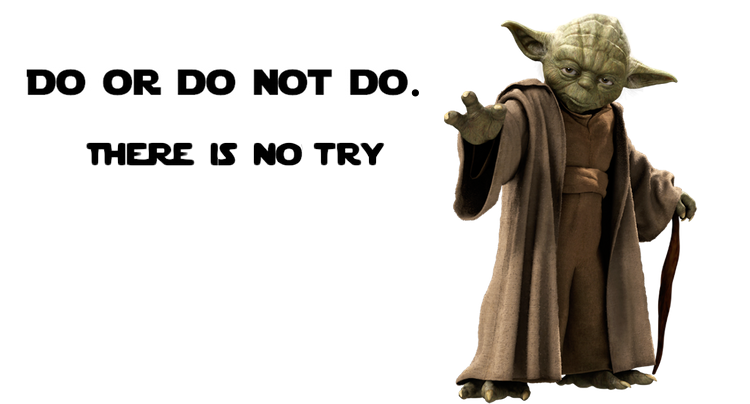 New Years Resolutions, or in other words, a promise that you make to yourself to start doing something good or stop doing something bad on the first day of the year, is not a new custom.
New Years Resolutions, or in other words, a promise that you make to yourself to start doing something good or stop doing something bad on the first day of the year, is not a new custom.
The ancient Babylonians made promises to their gods at the start of each year that they would return borrowed objects and pay their debts.
The Romans began each year by making promises to the god Janus, for whom the month of January is named.
What is the status of New Years Resolutions today?
A 2014 study by the Journal of Clinical Psychology from the University of Scranton showed that 45% of Americans usually make New Years Resolutions, and only 8% are successful in achieving them, despite the fact that 52% of the study’s participants were confident of success at the beginning.
On the list of TOP 10 New Years Resolutions of 2014 we can find promises such as:
- Lose Weight
- Get Organized
- Quit Smoking
- Fall in Love
- Spend More Time with Family
Each January, fitness clubs are crowded with people who, on the second day of a new year have decide to lose some weight. To those who have been at the gym for the other 11 months of the year, this peri od is a dreaded time. Luckily for them, this eagerness to get fit doesn’t last long - research shows that 60% of gym memberships go unused, and attendance is usually back to normal by mid-February.
od is a dreaded time. Luckily for them, this eagerness to get fit doesn’t last long - research shows that 60% of gym memberships go unused, and attendance is usually back to normal by mid-February.
And what about quitting smoking? According to studies, only an estimated 15% of people who try to quit manage to stay cigarette-free six months later.
Even being persistent about spending time with the family isn’t easy. According recent polls more than 50% of Americans have vowed to appreciate loved ones and spend more time with family and friends this year. Then February arrives, reality sets in, and it turns out that work doesn’t magically disappear with the dawning of a new year, and you’re at the office more than ever. It’s a hard promise to keep — no matter how sincere the desire.
Why is it so hard for us to keep our promises?
The area of the brain largely responsible for willpower, the prefrontal cortex, is located just behind the forehead, and besides New Year’s resolutions has many other things to worry about. For instance, scientists have discovered that this chunk of cortex is also in charge of keeping us focused, handling short-term memory and solving abstract problems. Asking it to lose weight is often asking it to do one thing too many.
Most of us assume that self-control is largely a character issue, and that we would follow through on our New Year’s resolutions if only we had a bit more discipline. We couldn’t be more wrong; research suggests that willpower itself is inherently limited, and we can even compare it to the muscles of the body. 
Everybody knows that the biceps have practical limitations: If we ask the muscle to hold too much, it will give out and drop everything on the floor. And just as our muscles get tired after a tough workout, and require a rest to recuperate, so the poor the prefrontal cortex needs some time off.
So, when we ask the brain to suddenly stop eating its favorite foods and focus more at work and at the same time get more organized…we’re probably asking for too much. It’s important to be aware that even small but challenging changes can impact our behavior and make it significantly harder to summon up the strength to keep other promises at the same time.
Certainly, we do not want to overwhelm our willpower (especially after a demanding New Years’ party), but at the same time we still want to be the one of the 8% of the people that actually accomplish goals.
The remedy for this issue is to choose our single most important goal, and then stick to it. By taking care of one thing at a time, you will see quicker progress, which will additionally increase your motivation and your willingness to achieve this goal.
How to mislead your willpower
Trying to suppress your thoughts is counterproductive, like trying as hard as you can not to think about pink elephants or white bears. When you try to suppress your thoughts, they often come back stronger than before. Looking for distractions is a much better strategy.
Distraction is a very effective tool when used properly. It works well only if the distraction is powerful enough to truly distract you. Many times people will attempt to distract themselves with something that is fairly mindless, but the trick is to find a distraction that actually occupies all of your attention, such as an absorbing book, a difficult crossword puzzle, a Rubik’s Cube or a silly computer game, or anything else that grabs your attention.
In the 1960s, prof. Mischel conducted a famous study in which four-year-old children were given an choice: eat one marshmallow right away or wait 20 more minutes and eat two marshmallows instead. Mischel found out that the children who are better at resisting the temptation are also the ones who sing songs, stand in the corner of the room, cover their eyes, or pretend the marshmallow is a cloud. In other words, they’re able to temporarily clear the temptation from their consciousness. Because they know that their willpower is weak, they excel at changing the focus of their attention: When faced with candy, they stare at the carrots.

The good news for us is the fact that when the research team taught the children some distraction strategies, even the kids who failed the first test could hold out for 20 minutes.
So, the conclusion is that it’s absolutely not true that some people just “have willpower” and other people don’t. “Willpower” is a learned behavior, and not only an inborn character trait. So, we should avoid making excuses and start developing our willpower right away 
Your action plan
Even though the percentage of successful completions of New Year’s Resolutions isn’t high, we think that this decisive moment of the year is an excellent time to start pondering our current situation and developing our future plans. Obviously, nothing will improve by itself. We need to do things differently to make things happen. Without change, there can be no improvements.
With this in mind we encourage you to take your time and think about your New Years resolutions, any healthy habits that you want to cultivate, or any routine that you want to change.
Write them all down and select one that, when accomplished, will bring you the greatest satisfaction. Remember to take one step at a time - small changes will eventually lead you to the desired big one. Here, you can read a detailed description of how to do this in 4 steps, and how to set goals to do this easily.

Last but not least: We wish you a Happy New Year and a lot of willpower, helpful distractions and persistence to accomplish your dreamed-of-goals!





This article is too much like this one: http://www.selfdirectedlearning.com/personal-development/develop-willpower.html
Is it by accident?
I see that this article also contains the information about marshmallow experiment and concerns the topic of willpower. I think that this particular research is quite popular, but still is a very powerful example of human behavior. It’s nice to know that your willpower is not given but can be trained. Thanks for reading and your comment.